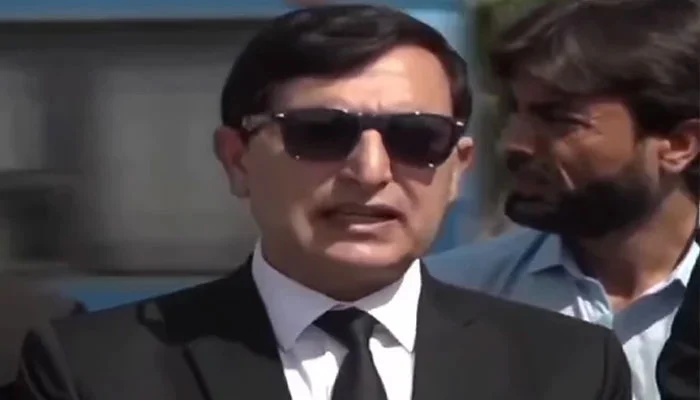Contradictory claims have surfaced over possible negotiations between the ruling Pakistan Muslim League-Nawaz (PMLN) and Pakistan Tehreek-e-Insaf (PTI). PTI has denied offering any talks, while political figures like Mahmood Khan Achakzai confirm discussions.
PTI Chairman Barrister Gohar Khan denied any attempt to initiate talks with the ruling party. “The PTI neither offered to engage in talks nor sought any favors,” he said, emphasizing that there were no discussions beyond parliamentary matters with National Assembly Speaker Ayaz Sadiq.
However, Mahmood Khan Achakzai, leader of Pakhtunkhwa Milli Awami Party (PkMAP) and head of the PTI-led Tehreek Tahafuz Aiyeen-e-Pakistan alliance, claimed that PTI had chosen him to lead negotiations. Achakzai stated, “All political leadership, including Nawaz Sharif, agrees on upholding the Constitution. I met Rana Sanaullah, and dialogue is the only way forward.”
Despite Achakzai’s statements, PTI spokesman Raoof Hassan did not mention any direct talks between PTI and PMLN. Hassan stated that Imran Khan had authorized Achakzai to engage in political discussions, but no PTI member was in contact with PMLN. “We do not wish to engage in negotiations with PMLN,” Barrister Gohar Khan reiterated.
Raoof Hassan added that PTI seeks dialogue with the establishment, recognizing the reality of power dynamics in Pakistan. He hoped for an end to the deadlock between PTI and the establishment, arguing that it is crucial for the country’s future. “If Pakistan is to move forward, dialogue between the largest party and the most powerful institution is necessary,” he stated.
When questioned about steps taken to build trust for dialogue, Hassan said PTI has done all it can. He stressed that political stability depends on respecting the PTI’s mandate, whether through judicial channels or fresh elections.
On allegations related to the May 9 incident, Hassan suggested forming a judicial commission to investigate, rejecting any claims that PTI members were involved with anti-national elements. “Evidence should be presented in court,” he added, challenging Information Minister Atta Ullah Tarar to prove his allegations.
PTI plans to launch a nationwide movement starting September 8, with rallies across Pakistan, even without official permission. “After active roles in parliament and courtrooms, PTI will now lead the charge on the streets,” he declared.
Meanwhile, PMLN leader and Defense Minister Khawaja Asif dismissed the possibility of talks, citing the current political climate. “Using a senior politician like Mehmood Khan Achakzai for negotiations is unfair,” Asif said. He emphasized that unless PTI apologizes for the May 9 incidents, no progress can be made.
Senate Chairman Yusuf Raza Gilani affirmed that the Pakistan Peoples Party (PPP) would support any decisions made by Prime Minister Shehbaz Sharif on national security matters. “We need to unite for the sake of the country,” Gilani urged, stressing unity among all political parties.
In conclusion, political dialogue in Pakistan remains mired in conflicting statements and uncertain intentions. While some advocate for negotiations to steer the country forward, others remain steadfast in their positions, indicating a challenging path ahead for any political resolution.


